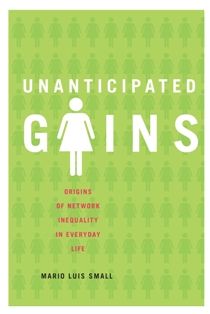Mario Small's Compelling Case for Child Care Centers as Networking Hubs
Blog Post
Sept. 9, 2009
 See the words "the network effect" and you might assume that the topic is Facebook or your cellular company's family plan. But take a moment to watch this video of Mario Luis Small talk about child care centers and you realize, ah yes, this is what networking is all about.
See the words "the network effect" and you might assume that the topic is Facebook or your cellular company's family plan. But take a moment to watch this video of Mario Luis Small talk about child care centers and you realize, ah yes, this is what networking is all about.
Small, a social scientist at the University of Chicago, has conducted research on child care centers in New York and has written about them in his new book Unanticipated Gains: Origins of Network Inequality in Everyday Life. We learned about this on Birth to Thrive, and we're hungry to read more. Here's blogger Paul Nhyan's take:
More importantly, parents build social capital at these centers, connecting with other moms and dads. This isn’t a big surprise to me, since I found everything from job leads and story ideas to nanny referrals and parenting advice at our child care center.
In the video, Small says that he found that mothers with children in childcare centers were less depressed and exchanged more information about child rearing. They also found out about resources like health clinics and museums that catered to children. Instead of being thought of as simple drop-off spots for babysitting, Small argues, "the centers have quite a few benefits for the social networks and social well-being of the mothers."
Small talks, too, about how certain characteristics of centers can encourage or discourage parents to get to know each other. For example, he says, child care centers that set specific drop-off and pick-up times are better at enabling parents to meet, talk and compare experiences.
The next step would be to see how center-based programs -- preferably those that offer a high-quality preschool experience -- provide benefits to parents a few years later. Do they enable them to feel better connected to the elementary school their children will attend? Do they provide them with role models for how to advocate for their children's needs? We'd welcome more research on whether this network effect ripples upward through children's school years.